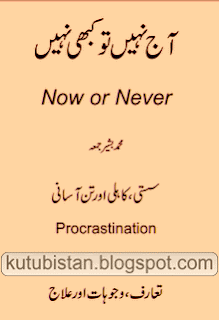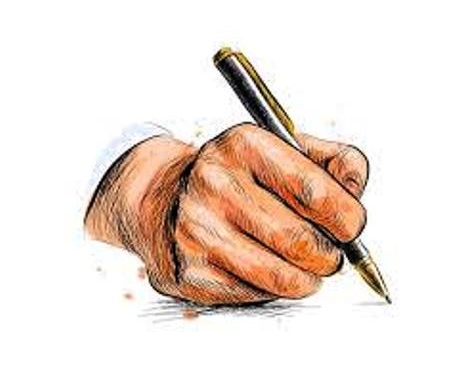Urdu – a rich but dying language
Urdu – a rich but dying language
The other day when I had personally gone to collect the newspaper to see the particular news in the newspaper which are not coming at my place, the vender was saying to one of the old timer Urdu language lover – Uncle, sorry, I get only five copies and all have been sold including mine which I keep for reading myself.
The reason behind vanishing of Urdu paper from the stalls is due to the fact that our young generation has distanced itself from Urdu, especially Urdu literature, is something to lament over.
Sometimes, I too love reading the Urdu as I had learned this rich and sweet language from Language Department evening classes going on for the last more than four decades and I am one of the student passed Urdu Amoz class, under the guiding teacher of Janab Ram Nath Chopra Ji dedicated to Urdu teaching.
But after the above incident and coming across a touching phrase by Khurshid Afsar Bisrani – “Ab urdu kya hai, ek kothay ki tawaif hai, mazaa har ek leta hai, mohabbat kam kartey hain.” (What is Urdu, but a prostitute of a brothel, everyone takes advantage, but only few truly love her.) – prompted me to pen down my feelings regarding the state of Urdu in my view.
Thanks to my upbringing, with my father, being fond of reading and writing Urdu, I have lived in an environment, where reading has always been appreciated and we have our own library at home with few books and magazines in Urdu which has always inspired me.
Since Urdu not being an official language in school, college or university, the 4thgeneration is not at all, neither aware nor interested in this well-off language.
My father has left two diaries written in Urdu containing notes and various quotes – one of it has been got translated and other is under process. I quote here few sentences which are a world of words – Mandir, Maszid, Gurdwara ya Church mein ja kar, agar aap pehle se behtar ban kar nahi aate to, tumhara jana befazool hai – Your going to Mandir, Maszid, Gurdwara or Church is futile, if you don’t become better than before.
Another two lines sentence looks to be odd in the first line but it has a great message in the second line. It goes like this – Ilm and Adab, dono khokhle hain yadi unme amal nahi hai – Both, knowledge and civility are hollow, if they are not practical.
After reading this third one, I have never compromise with the labour class while making payment as per his demand. It is – Mazdoor ki mazdoori, us ke paseena sukhne se pehle ada kar deni chahiye – the labour of the labourer, should be paid well before the drying of his sweat.
By skipping out on Urdu, this exemplifies the value our current generation gives to Urdu and our children are unable to understand some of the greatest works in Urdu literature, such as that of Iqbal or Amir Khusro.
But sometimes, while quoting the English translations of Iqbal’s poetry, which often takes away its essence and the following verse, beautifully explains my whole argument : “Tumhari tehzeeb apney khanjar se aap hi khudkushi karey gi, Jo shakh-e-nazuk pe aashiyana baney ga, na paidaar ho ga” – Your culture will destruct itself with its own dagger, A nest built on a fragile branch shall never be stable.
No nation has ever progressed by working in someone else’s language and Orya Maqbool Jan has rightly quoted, “You can learn in someone else’s language, but you cannot be creative in someone else’s language.
At the same time, it would be great to see if praise for Urdu is not limited to just its poetry, but also extends to its simple, humble words that we use in our everyday lives.
In fact, parents and our schooling system that encourage students to speak in English, at all times are the reason our kids find it difficult to cope with the demands of the Urdu language. They develop a sense of loathing towards it, distance themselves from it and anyone who does in fact enjoy Urdu is looked down upon.
Frankly speaking, there are many Indian languages which are fast losing their importance and for all purposes whether routine, legal, educational, higher educational etc. English has become almost mandatory.
My intention is not to downplay the importance of English in any sense. Rather to say that detaching ourselves from Urdu has cost us heavily. Studies on education systems have repeatedly shown that primary education of all subjects must be given in the mother tongue as the child is best able to absorb it at that age. However, because we have not done so, due to our inferiority complex, we have failed to develop even a liking for Urdu among our current generation.
What has been dying is not the language, but the credit given to the language. Pakistani soap operas, broadcast on Zindagi channel are helping to revive the langauge that got lost due to partition because holding a mushiaras, quawalis further helping Urdu make a comeback. In fact, the languages are closely linked to and depend on each other for their survival.
I feel that Urdu the most beautiful and cultured language of India, still spoken by millions of Indians, is dying a slow death. If it is not promoted, as one of the our major language, it will be die in a couple of generations when there will be no one who can read and write it and no one who will be interested in its nuances.





